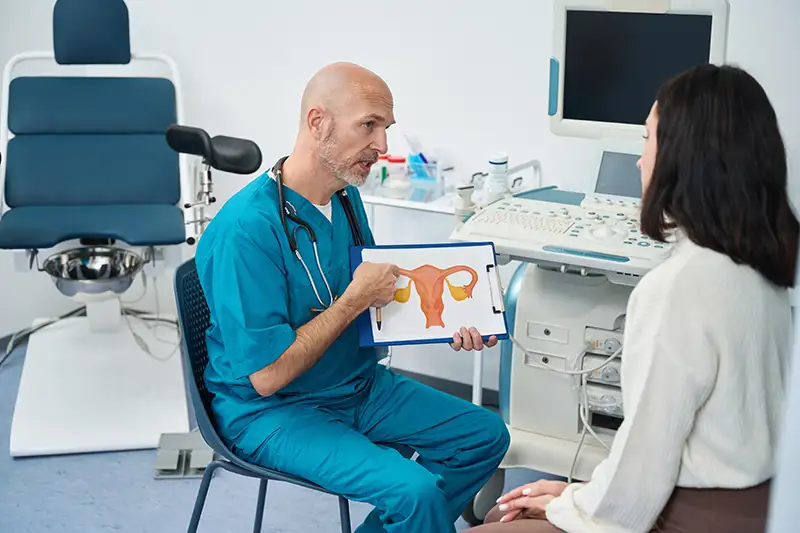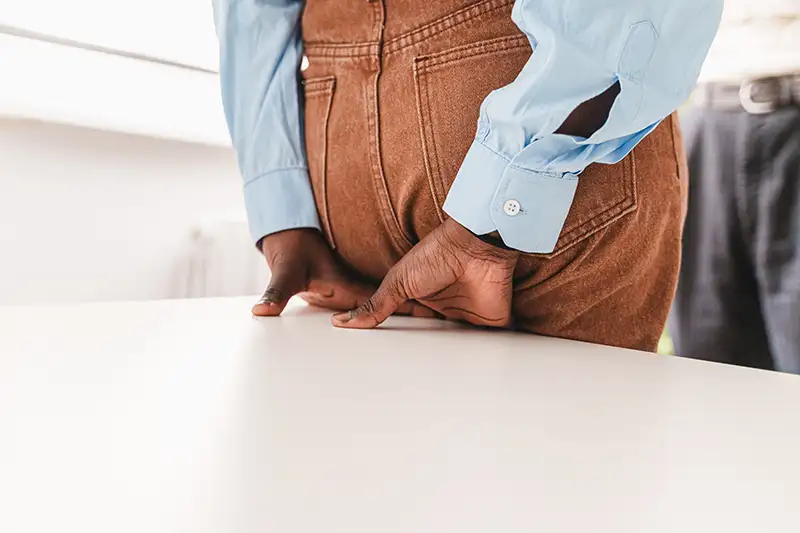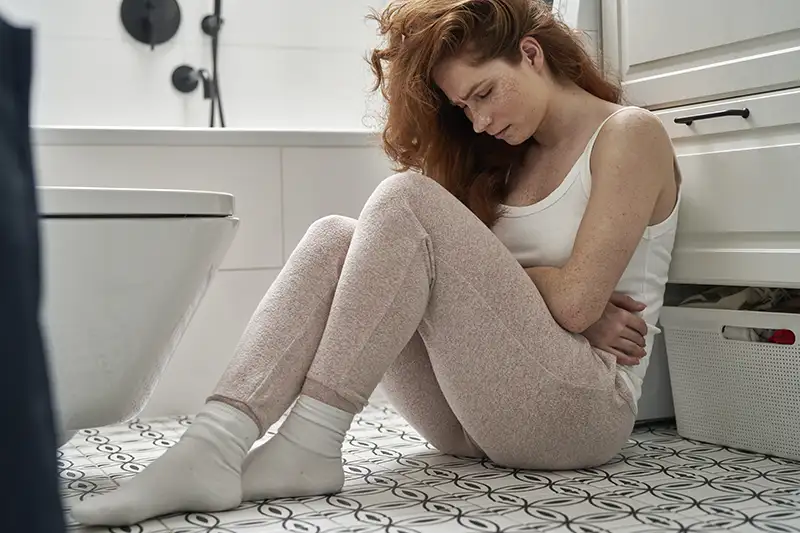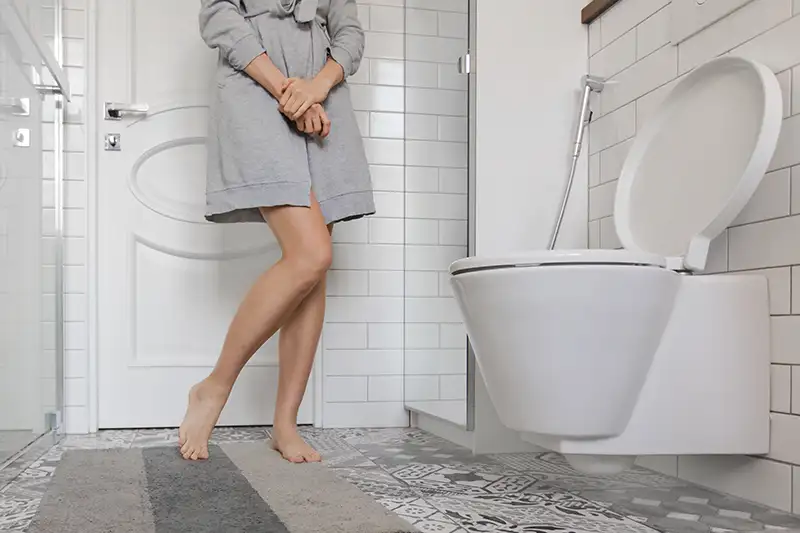Denver Urinary Incontinence
Living with urinary incontinence can impact daily life, but effective treatment is available at Incontinence Centers of America. Our team helps patients in Denver and surrounding communities regain control, comfort, and confidence. Among the most advanced solutions we offer is Axonics Therapy, a minimally invasive, long-term treatment for urinary incontinence caused by overactive bladder OAB and other bladder-related conditions.
Axonics Therapy for Urinary Incontinence Near You
Axonics Therapy is an FDA-approved implantable device that stimulates the sacral nerves controlling the bladder. By targeting the root cause of urinary incontinence, this therapy reduces involuntary leakage, sudden urges, and frequent bathroom trips. Unlike medications that treat symptoms temporarily, Axonics Therapy provides continuous, long-term relief.
At Incontinence Centers of America, we begin with a thorough evaluation, including a physical exam, urine sample, and review of medical history. Risk factors such as pelvic surgery, nerve damage, and incomplete bladder emptying are carefully considered. Patients then receive a personalized plan, which may include:
- Minimally invasive implantation of the Axonics device
- Post-procedure follow-up and programming for optimal results
- Bladder training, timed voiding, and pelvic floor exercises
- Lifestyle and dietary guidance to complement therapy
Patients in Denver, Colorado Springs, and surrounding communities trust Incontinence Centers of America for our experience, longevity, and compassionate care.
What is Urinary Incontinence?
Urinary Incontinence also known as UI, is defined as having trouble controlling your bladder, with the inability to prevent urine leaking. This can range from small leaks now and then to more serious problems with frequent or heavy leaking. UI can unfortunately happen to anybody, but it’s more common in women, especially those over 50 years old. The effects can vary from being a minor inconvenience to something that seriously disrupts your daily life and confidence. There are three main types of urinary incontinence:
- Stress Incontinence: You leak urine when certain activities put pressure on your bladder; like coughing, sneezing, laughing, or exercising.
- Urge Incontinence: Also called an overactive bladder, this is when you get a sudden strong urge to urinate that’s hard to control, leading to leaks.
- Overflow Incontinence: This occurs when your bladder doesn’t fully empty and becomes too full, causing urine to leak out.
- Functional Incontinence: This type occurs when physical or mental challenges prevent you from getting to the restroom in time.
- Mixed Incontinence: This involves experiencing more than one type of urinary incontinence. Like a combination of stress incontinence (leaking due to physical pressure on the bladder) and urge incontinence (a sudden, intense urge to urinate).
Understanding and managing urinary incontinence is important to keep the problem from getting worse and to help you regain control of your life. (303) 816-3376
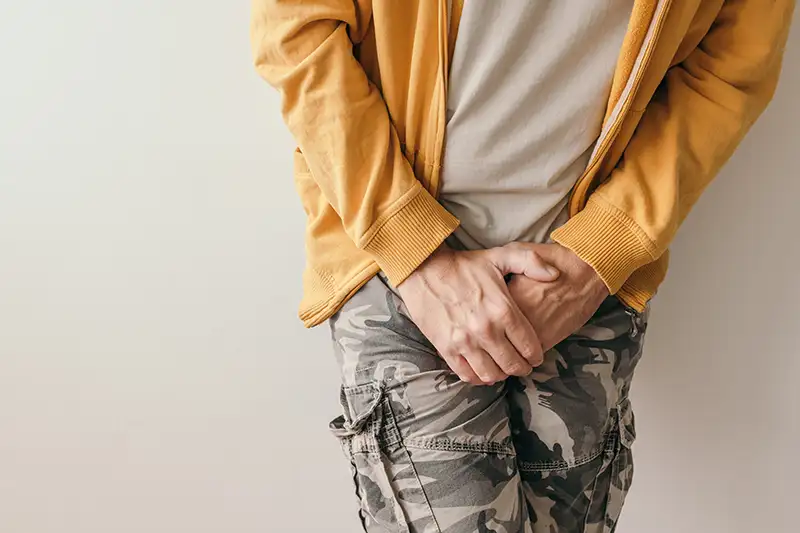
What Causes Urinary Incontinence?
There are a variety of causes for urinary incontinence, and you can speak to a medical professional – like the team here at Incontinence Centers of America – to help identify the root cause of yours. Some of the most common include:
- Weak Pelvic Floor Muscles: These muscles support your bladder. They can weaken from childbirth, aging, or surgery.
- Hormonal Changes: For women, menopause can lower hormone levels, affecting bladder control.
- Bladder Irritations or Infections: Infections or conditions like interstitial cystitis can inflame the bladder and cause leaks.
- Nerve Issues: Diseases like multiple sclerosis or Parkinson’s, or damage from a stroke, can mess with the nerves that control your bladder.
- Prostate Problems: In men, issues with the prostate, like enlargement or surgery, can affect bladder control.
- Medications: Some medicines, especially those that make you urinate more or affect bladder function, can lead to leaks.
- Chronic Conditions: Conditions like diabetes can interfere with bladder control by affecting nerves or causing frequent trips to the bathroom.
- Lifestyle Factors: Drinking too much caffeine or alcohol, being overweight, or smoking can make incontinence worse.
- Weak or Overactive Bladder Muscles: Sometimes, the muscles that control your bladder can be too weak or too active. If they contract too often, it can lead to a strong, uncontrollable urge to urinate (urge incontinence). Also, not drinking enough fluids can cause concentrated urine that irritates the bladder.
- Blockages: Things like tumors, urinary stones, or other obstructions in the bladder or urinary tract can block the normal flow of urine. This can prevent the bladder from emptying completely, leading to frequent leaks or dribbles (overflow incontinence).
Understanding the cause of your urinary incontinence helps your doctor determine the most effective treatment to address the issue and improve your condition.
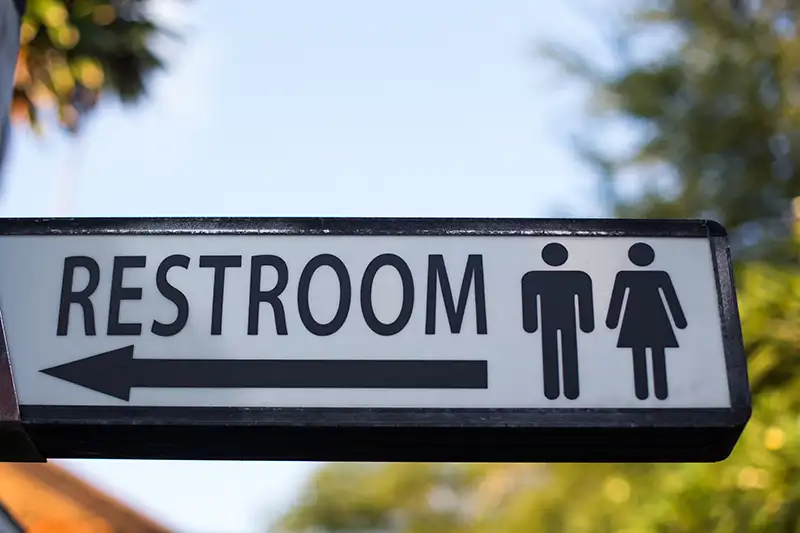
What Are The Symptoms Of Urinary Incontinence?
The symptoms of urinary incontinence can vary depending on the type and severity, but common signs include:
- Frequent Urination: Feeling the need to urinate more often than usual, including during the night.
- Urgent Need to Urinate: Experiencing a sudden, strong uncontrollable urge to urinate.
- Leaking Urine: Unintentional leakage of urine, which can range from small dribbles to larger leaks. Which can disrupt normal activities like work or sleeping.
- Difficulty Holding Urine: Struggling to hold urine until you can reach the restroom, leading to accidents.
- Leakage with Physical Activity: Leaking urine due to certain activities that put pressure on the bladder, such as coughing, sneezing, laughing, or exercising.
- Inability to Fully Empty the Bladder: Feeling like your bladder is still full even after urinating, leading to overflow leakage.
- Frequent Urgency During Sleep: Waking up multiple times during the night to go to the restroom.
- Dribbling After Urination: Experiencing small amounts of urine leaking right after going to the restroom.
Recognizing these symptoms is the first step towards managing and treating urinary incontinence effectively. If you’re experiencing any of these symptoms, it’s important to see a doctor like the team here at Incontinence Centers of America. We can provide a proper diagnosis and a custom treatment plan, to help prevent your condition from worsening.
What Treatment Options Are Available For Urinary Incontinence?
At Incontinence Centers of America, we offer several treatments for overactive bladder. One of the latest options is Axonics Therapy, which helps by targeting the nerves and muscles that control your bladder. This therapy has been very successful in improving bladder control, and helping patients regain their confidence and independence.
Supporting Lifestyle Changes for Urinary Incontinence
In addition to medical treatments, small lifestyle adjustments can enhance your results with Axonics Therapy and other interventions:
- Maintain a healthy weight to reduce pressure on the bladder
- Avoid or limit bladder irritants such as caffeine, alcohol, and carbonated drinks
- Perform regular pelvic floor exercises to strengthen bladder support muscles
- Practice timed voiding and bladder training to improve control
- Stay hydrated but avoid excessive fluid intake before bedtime
These changes, combined with personalized treatment, can help you regain confidence and reduce leaks over time.
Axonics® therapy is designed to help restore normal communication between your brain and your bladder or your brain and your bowel. Thanks to Axonics®:
- 93% of patients achieved clinically significant improvements after 2 years
- 94% of patients were satisfied with the Axonics® therapy
- Less than 2% felt any discomfort from the implant
1. Pezzella A, McCrery R, Lane F, et al. Two-year outcomes of the ARTISAN-SNM study for the treatment of urinary urgency incontinence using the Axonics rechargeable sacral neuromodulation system. Neurourol Urodyn. 2021;40(2):714-721. doi:10.1002/nau.24615
2. Blok, B, et al. Neurourol Urodyn. 2020
We also provide traditional treatments, including behavioral therapy and medications. Our team will work with you to create a treatment plan that fits your needs and goals.
Why Choose Axonics Therapy
Axonics Therapy offers unique benefits for patients struggling with urinary incontinence:
- Reduces involuntary leakage and urgent need to urinate
- Addresses bladder nerves rather than only symptoms
- Provides long-lasting relief without daily management
- Suitable for patients with prior pelvic surgery or complex medical histories
- Minimally invasive procedure with outpatient recovery
Our team combines years of expertise with a focus on personalized care, ensuring that every patient receives the treatment most likely to restore their quality of life.
Benefits of Seeking Care at Incontinence Centers of America
Patients trust Incontinence Centers of America for our combination of experience, advanced technology, and compassionate care. Benefits include:
- Board-certified specialists with years of experience in bladder and bowel disorders
- Personalized treatment plans designed to meet your individual needs and lifestyle
- Access to the latest therapies, including minimally invasive Axonics Therapy
- Dedicated follow-up and programming to optimize results
- A supportive environment that prioritizes both physical and emotional well-being
Questions About Urinary Incontinence
How can I manage urinary incontinence at home?
Lifestyle changes can support professional treatment. Incontinence Centers of America recommends pelvic floor exercises, maintaining a healthy weight, reducing bladder irritants, and using protective products if needed. These strategies complement treatments like Axonics Therapy to provide better control and comfort.
When should I see a doctor?
If urinary leaks interfere with daily activities, disrupt sleep, or impact confidence, it’s time to consult a specialist. Incontinence Centers of America provides thorough evaluations and personalized treatment options to restore bladder control.
Is urinary incontinence just a part of getting older?
While urinary incontinence is more common in older adults, it is not inevitable. Incontinence Centers of America can diagnose and treat the condition at any age, helping patients regain independence and quality of life.
Can urinary incontinence affect my mental health?
Yes, chronic incontinence can cause stress, embarrassment, and anxiety. Incontinence Centers of America addresses both physical symptoms and emotional well-being, offering guidance and support throughout treatment.
How does Incontinence Centers of America treat urinary incontinence?
We start with a proper diagnosis using a physical exam, urine sample testing, and evaluation of bladder nerves. Axonics Therapy is often recommended, and patients receive comprehensive guidance on bladder training, Kegel exercises, and lifestyle adjustments.
Is Axonics Therapy safe for women and men of all ages?
Yes. Incontinence Centers of America has successfully treated men and women of all ages, including patients with prior pelvic surgery or complex medical histories. We customize each treatment to ensure safety and effectiveness.
Why choose Incontinence Centers of America in Denver?
With years of experience, a dedicated team, and access to advanced therapies like Axonics, Incontinence Centers of America provides compassionate care near you. Patients regain control, confidence, and comfort in their daily lives through our evidence-based treatment plans.

